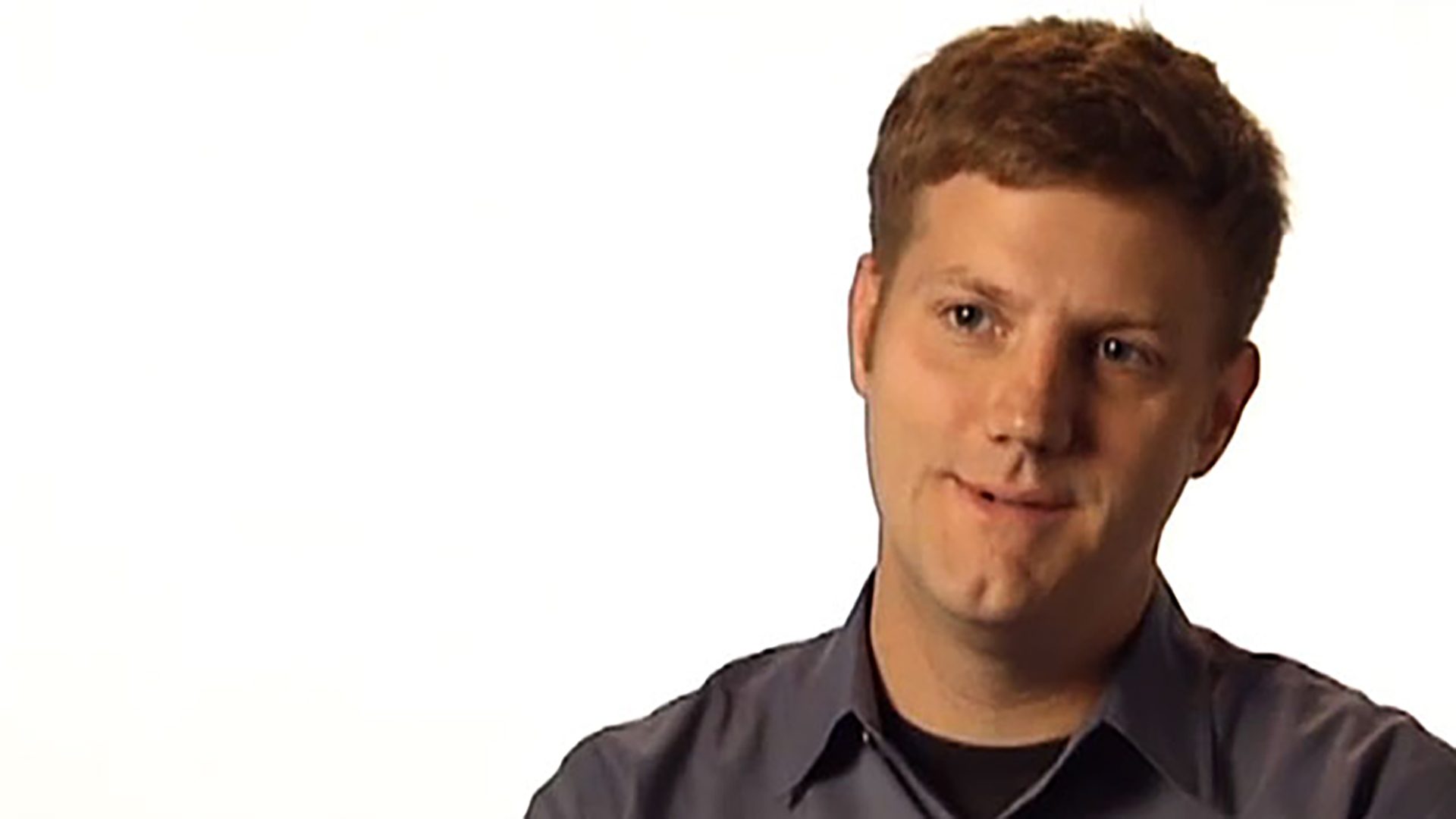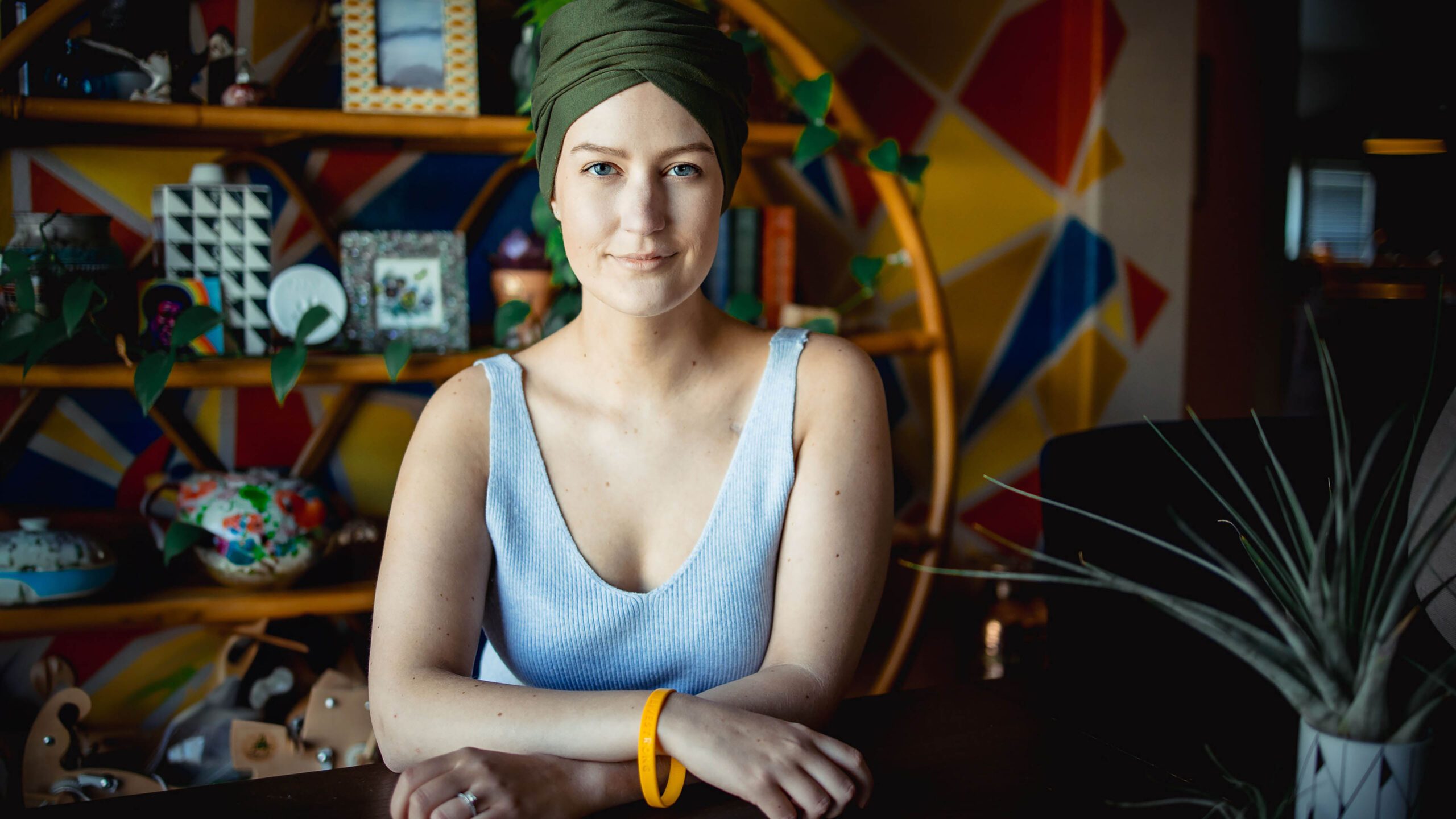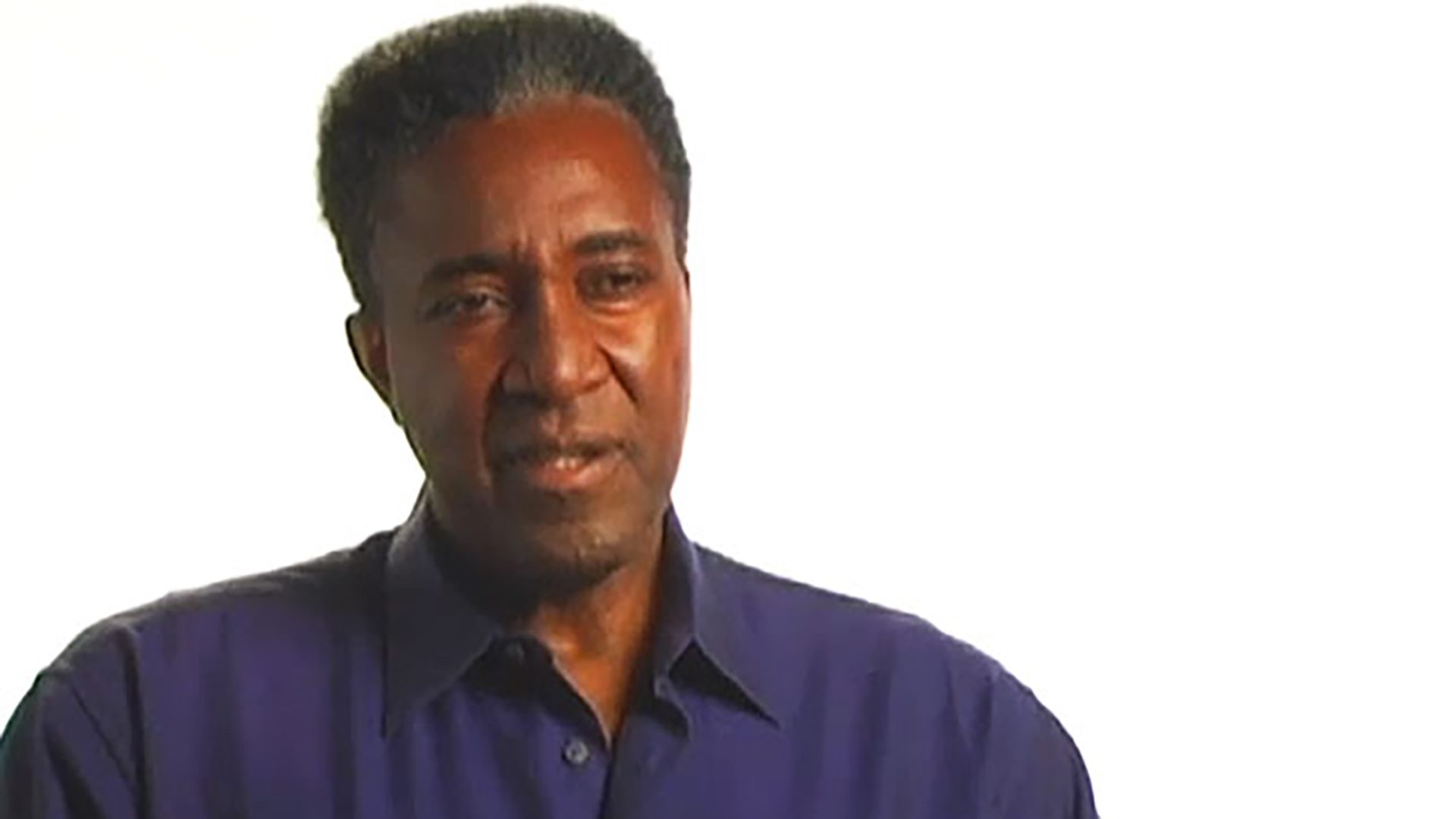Survivor Interview – Scott T.
Scott is a survivor of a neuroendocrine tumor of the pancreas. He discusses a clinical trial, dating and new relationships, and setting priorities in his life.

I became a survivor on December 11, 2000, when I was diagnosed with a neuroendocrine tumor of the pancreas.
I happened to go give blood at the Red Cross in September of 2000. They told me they thought I might have hepatitis because my enzyme levels were so high. For the next three months, I went through a lot of different biopsies to try to figure out exactly what I had. They thought it was liver cancer, but they figured out that I really had a neuroendocrine tumor of the pancreas, which is a little bit slower growing. It had grown from my pancreas. It was such a small tumor that when you saw metastases in the liver, you assumed it was liver cancer.
I went through the normal chemotherapy protocol, but it was all palliative. They were hoping to give me a little bit of extra time. Then I got onto a clinical trial for Endostatin, which I’ve been on for a little over two years now. My tumor has been stable for the past two years. I have a little bit more hope that this might be the miracle drug that could truly treat cancer more like diabetes, a chronic disease where you just give yourself a shot every day.
I give myself a shot twice a day of Endostatin, and see the doctor every two weeks. It’s like I’m not even going through chemotherapy. They poke you a little bit, make sure that the tumor’s not growing. You get a CAT scan every two months. That’s about it. The reason they have all these visits to the doctor is that they’re expecting something to happen, where all of a sudden I’m gonna say, “I feel miserable. I have all these horrible symptoms.” Instead, I’m going in and saying, “I feel perfectly fine.” They go, “Okay. The protocol says that we have to make sure that you’re fine.” It’s definitely not what they’re expecting. I’ve gone past the, “I’ll do anything that you have to do to get treated for cancer” to now, all of a sudden, becoming upset that I have to go in and see a doctor every two weeks.
I’m hoping I’m making history with Endostatin. Every day I go with my tumor being stable is another day that I’m proving to the FDA that the drug works. Until I see otherwise, I’m gonna consider that my tumor’s gonna stay stable for the rest of my life.
They never said, “You’re gonna die.” But without saying it, they were saying that there’s only so much you can do. With the size of the tumor in my liver, there wasn’t going to be a cure. One of the best pieces of advice my first oncologist ever gave me was, “Don’t look at the statistics, because you never know what’s going to happen. Every person is individual.” I stuck by that. For example, when you sit there and try to compare a 70-year-old man and a 30-year-old man diagnosed with what I had, it’s not the same. As long as I survive, then the survival rates are 100% for Scott Toner.
What I figured out was that you can enjoy the life you have or you can sit there and worry about it. My attitude has been, everyone is gonna die someday. You’ve been given a gift, so enjoy it while you can. It’s so abstract before, and it becomes so real after being diagnosed, that sooner or later you have to face it. I don’t think it’s the worst thing to have to face the possibility that you might die sometime.
I’ve enjoyed my life more since being diagnosed, because I realized that a lot of the smaller things don’t matter. I manage a group of people at the place I work at. I’m the one who usually tells them to relax, not get so upset and not to work too much overtime. There are bigger things to be concerned about. We’ll get it done. To stress out the whole time is not the way to go through life.
One of the things that cancer does to you, a good and a bad thing, is it lets you know that you don’t have control over your life, even though you want to have and think that you do. What I try to do now is control how I react to things, more than try to control the situation. I’m never going to tell my body to just get rid of the cancer. It’s there. Maybe someday there might be a cure that will completely remove it from my body, but at the moment, it’s more me reacting to having it.
I was really concerned about dating after being diagnosed. I didn’t have a girlfriend at the time, and I didn’t think it was fair to anyone when I was first diagnosed to really get involved, because I was so involved in fighting the disease. Then I got onto Endostatin and I started to feel like it might possibly be a cure. So I started dating someone. Even with that, I was somewhat concerned about how she was gonna react when I finally told her that I had cancer. What surprised me was that there was no reaction like, “Oh, you have cancer. Well, then I don’t want to go out with you,” or anything like that. It was fine to her. She was willing to accept it. We’re gonna get married in September.
The cancer was never the concern like, “What’s gonna happen two years down the road?” My father passed away at a very young age from a heart attack. Would my mother not have gone out with my father if she knew that ten years into the marriage he was going to die of a heart attack? Be it ten years, fifty years, one year, you still get a lot of joy out of the experience. Going back to what I was saying before about just enjoying what you have, if all you’re given is a few years, then enjoy the few years you have. If you have fifty years in the end, it’s all icing on the cake.
People might think it’s strange, but one of the things that I feel fortunate about was that the first thing they told me was they thought I had liver cancer and would probably die. I had to come to grips with that. Now it’s back to, who knows what’s gonna happen? I think any person, you basically could say the same thing. Who knows if you’re gonna get hit by a car or drop dead of a heart attack? I think everyone lives with uncertainty. Most people delude themselves so that they can live life. They don’t think there’s the possibility that, every day you wake up, you might die. But there is. What I think is good about this drug is, I’ve gone back to that delusion that today is not gonna be the day I’m going to die.
More of the uncertainty is how this drug is working right now. Who knows if the FDA is going to approve it? It still has to go through a gauntlet of different trials and financial backing to get it out to market. I happen to have a very rare form of cancer, so right now with this drug proving that it works for a very rare form of cancer, the market doesn’t really see the financial incentive to doing this. They might take a drug away that truly does work on cancer. I don’t think that’s gonna happen, but it is a possibility. So there are these uncertainties. But it’s not worth worrying about tomorrow, because a lot of the things that you worry about don’t come to fruition. Better to focus on today, enjoy it, and move on to tomorrow when it happens.
Don’t let a diagnosis of cancer determine that somehow you’re supposed to not continue to live life, that it’s basically a death sentence. I’ve done a lot of things since being diagnosed. I’ve gone to Europe a few times. I’ve run six marathons, which I had never done before. I’ve gotten engaged. I could have just as easily rolled up in a ball and said, “I’ve been diagnosed with cancer. I guess I’m gonna die in the next ‘x’ amount of months.” That’s not what has to happen.
Survivorship means realizing how fortunate you are to be alive. No matter what the situation, it’s better to be alive, to enjoy it and to be with friends and family, to just be able to enjoy the miracle of life.
My name is Scott Toner. I’m 35 and I’m a four-year survivor of a neuroendocrine tumor of the pancreas.

